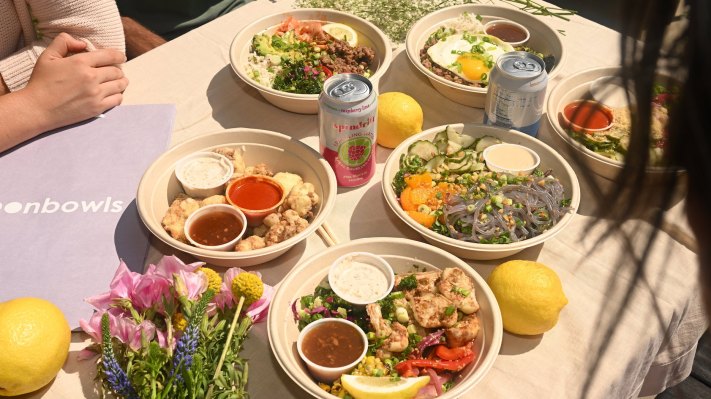[ad_1]

Salted, a company that builds quick-serve restaurant brands, secured $14 million in Series B funding. The funds will accelerate what CEO Jeff Appelbaum says is the company’s vision to have “thousands of locations” over the next few years.
The Los Angeles-based company has created six brands since the company was founded in 2014, including moonbowls (Korean cuisine), Cauliflower Pizza and lulubowls (Hawaiian-inspired dishes).
Appelbaum touts that what makes Salted unique is that it owns its intellectual property and operates the brands itself.
“We see ourselves as this platform for building the most important QSR brands, brands that reflect a new generation of restaurants,” Appelbaum told TechCrunch. “Many of the most valuable restaurant brands were created 70 years ago. We see this opportunity to build brands that are different in terms of them being really cap-ex light, thinking about delivery and takeout from day one as a core competency and focused on food that customers feel really good about bringing into their homes.”
Carving out a niche
Salted’s business model sets it apart from many of the “ghost kitchen” or virtual restaurant businesses that emerged in the past three years, Appelbaum said. Some have found success starting brands; for example, Lanch, which recently secured $6.9 million, is working with celebrities and influencers.
Others have found the road more difficult. Virtual Dining Concepts was sued by YouTube star MrBeast over his MrBeast Burger. Meanwhile, Uber Eats in March decided to clear its app of thousands of virtual restaurant listings and stopped enabling multiple restaurant brands to have the same menu.
Appelbaum also attributes the continuity to the company’s restaurant operations software it developed so that each of its locations maintains the same quality. One of the newer features is an image capture for training and retraining kitchen staff. Every ingredient used is captured, tagged and reviewed for consistency. For example, all pickled onions have the same shade or that sweet potatoes are charred in the same way across kitchens.
Salted has 25 locations in nine states. Regarding revenue, Appelbaum didn’t give specifics, only to say it was “growing steadily.” He did, however, say that at the location level, they are averaging over $1 million in orders per year and all locations are profitable.
The company is also branching out on its business model. It is close to completing its first acquisition, a Mediterranean-inspired brand it didn’t initially create. Salted has already tested the brand at six of its locations, “and it has done extremely well,” Appelbaum said.
Growth plans
Meanwhile, Creadev, which led the company’s Series A investment in 2021, is back to lead this new round. The firm is joined by Proof Ventures and B. Riley Financial. This was an up round for Salted, though Appelbaum declined to go into specifics on the valuation.
“Salted has proven a much more efficient, sustainable and responsible model for scaling a national restaurant platform,” Alexia Lingart, investment manager at Creadev USA, said via email. “We believe their deep focus on quality, data, and technology will enable them to capitalize on the shifting consumer behavior in their industry.”
Expansion was the driver for new funding, Appelbaum said. Salted can go from real estate lease signing to opening in as little as 60 days. He wants to hire more people and continue to invest in technology. There is also opportunity for additional brand acquisitions.
“Our vision is to have thousands of locations,” he said. “We are only in nine states, but we are increasingly building clusters around major metropolises. With the great diversity of brands, we see this working. The expansion is going to be widespread. We plan to remain in the United States for the next few years. Though we also have real estate partners scouting out international locations.”
[ad_2]
techcrunch.com




